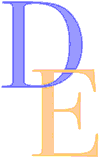Documentary Editing, Association for

Documentary Editing: Journal of the Association for Documentary Editing (1979–2011)
Date of this Version
Spring 2003
Document Type
Article
Citation
Documentary Editing, Volume 25, Number 1, Spring 2003. ISSN 0196-7134
Abstract
I am very honored to speak to this group today. l owe an enormous debt to the work that you do and I very sincerely thank you for it. Documentary editing has, for me, an almost priestly connotation. I went to a Jesuit high school where my toughest teacher was Fr. Alphonse Yumont, who taught Latin. Every night we had to pore over a long section of Vergil, and the next morning had to translate it aloud in class. Errors were not allowed. And by "errors" I mean any deviations whatever from a precisely literal translation. We were not allowed to glide over obscurities or embellish with flights of fancy. I can still hear the slap of Fr. Yumont's stick on the desk as he shrieked, "Mister! Look at the text! Don't tell me what you think it means. Tell me what it says!"
From Fr. Yumont I acquired a habit of paying meticulous, maniacal attention to "the text"-the holy object right in front of you. From him I learned that if you paid very close attention to the text you would learn things richer and more complex than the interpretations created by your imagination. If you refused to gloss over the obscurities and the ambiguities, but struggled instead to comprehend a text exactly as it came down to you, you would enter the mind and the distant world of someone else from long ago. And if your translation turned out to be a bit duller than you wished, at least it had the advantage of being true.
Included in
Digital Humanities Commons, Other Arts and Humanities Commons, Reading and Language Commons, Technical and Professional Writing Commons


Comments
2003 © the Association for Documentary Editing. Used by permission.